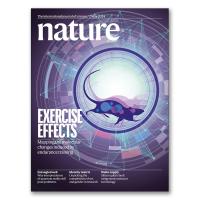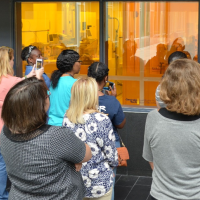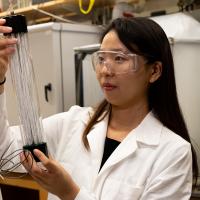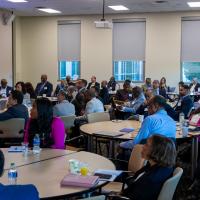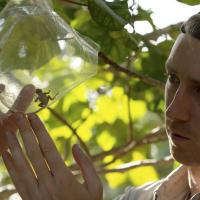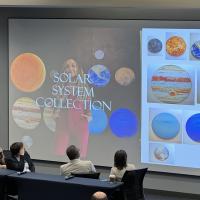In a group of papers released May 1 in the journal Nature, scientists are one step closer to a whole-body map of the body’s cellular responses to endurance exercise — identifying striking “all tissue effects” of training, even in tissues from organs not normally associated with movement.The findings are the latest product of the Molecular…
When Amy Bonecutter-Leonard was a second-semester undergraduate at the Georgia Institute of Technology, she applied for a work-study job in the cleanroom at the Microelectronics Research Center (MiRC). There, she learned process techniques for making the same type of electronic chips used in cellphones. With this new knowledge, she…
Quantum sensors detect the smallest of environmental changes — for example, an atom reacting to a magnetic field. As these sensors “read” the unique behaviors of subatomic particles, they also dramatically improve scientists’ ability to measure and detect changes in our wider environment.Monitoring these tiny changes results in a wide range of…
To avoid catastrophic climate impacts, excessive carbon emissions must be addressed. At this point, cutting emissions isn’t enough. Direct air capture, a technology that pulls carbon dioxide out of ambient air, has great potential to help solve the problem.But there’s a big challenge. For direct air capture technology, every type of environment…
The University System of Georgia Board of Regents has approved a new Neuroscience and Neurotechnology Ph.D. Program at Georgia Tech.The interdisciplinary degree is a joint effort across the Colleges of Sciences, Computing, and Engineering. The program expects to enroll its first graduate students in Fall 2025, pending approval by the Southern…
Robots that can run, jump, and even talk have shifted from the stuff of science fiction to reality in the past few decades. Yet even in robots specialized for specific movements like running, animals are still able to outmaneuver the most advanced robotic developments. Georgia Tech’s Simon Sponberg recently collaborated with researchers at…
Georgia Tech’s AI Hub will be directed by Pascal Van Hentenryck, announced Chaouki Abdallah, executive vice president for Research. Van Hentenryck, A. Russell Chandler III Chair and professor in the H. Milton Stewart School of Industrial and Systems Engineering, also directs the NSF Artificial Intelligence Institute for Advances in Optimization (…
Georgia Tech is spearheading a bold initiative in inclusive innovation, by significantly investing in historically black colleges and universities (HBCUs) and minority-serving institutions (MSIs). Following the success of the Research Collaboration Forum in November 2023, which focused on advancing minority students in science and technology, the…
James T. Stroud has been named an Early Career Fellow by the Ecological Society of America.He joins the ranks of nine newly appointed ESA Fellows and ten 2024-2028 ESA Early Career Fellows, elected for "advancing the science of ecology and showing promise for continuing contributions" and recently confirmed by the organization's Governing Board.…
April 12 is a significant date in the history of exploration, as it marks the first space flight of a human, Yuri Gagarin, in 1961. This year on April 12, the Georgia Tech Space Research Initiative (Space RI) hosted an event highlighting the Institute’s interdisciplinary space research. The Yuri’s Day Symposium was Space RI’s first public event.A…

